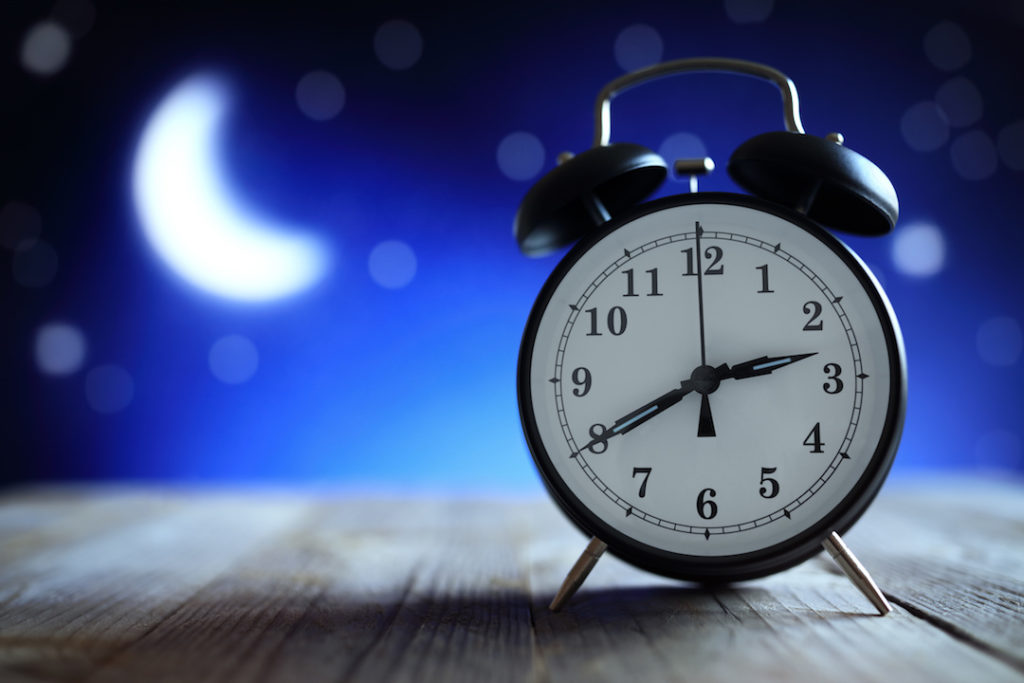Why Can’t I Sleep?
January 16 2019Always exhausted? You’re not alone.

1. You check your phone before bed.
Social media and email can bring stress. That can make you struggle to sleep, says Joseph Chandler, PhD, an assistant professor of psychology at Birmingham-Southern College.
The other issue with phone time before bedtime? Your brain thinks the artificial light from the screen is daylight. So, your body doesn’t make as much of something called melatonin. That’s a chemical that helps you sleep. If you don’t have enough of it, you may get insomnia — the inability to fall or stay asleep.
2. You go to bed at different times all week long.
Hitting the hay at 9:30 on Wednesday and midnight on Saturday can throw off your body’s internal clock. That can make it harder for you to fall and stay asleep. It can also make you groggy when you wake up, Verma says.
The fix: You may not be able to go to bed at the same time every day, “but try not to vary by more than 30 to 45 minutes, even on the weekend,” Verma says.
3. You power through your late afternoon slump with a cup of coffee.
Caffeine has many health perks. One major downside? “It disrupts your brain’s ability to keep track of how long it has been awake, making you more alert than you should be,” says Chandler.
If you’re a coffee lover, or you regularly down other drinks with caffeine, you might think that you’ve built up a tolerance to it and that you can still have a cup of coffee before bed.
Chandler says that would have a bad effect on even the most experienced caffeine fiend’s sleep.
The fix: Stop the jolt flow at least 5 hours before you go to bed — sooner if you know you’re especially sensitive. “Most caffeine leaves your system within 7 hours. But if you get really jittery after a single cup of coffee, stick to one before lunch,” Verma says.
4. You wind down with a few adult beverages.
A drink in the evening is fine for most adults (ask your doctor if you’re not sure it’s a good idea for you). Several, or a true before-bed nightcap, can help you fall asleep but can also keep you from getting the deep, restful sleep we’re all after.
What’s more, alcohol is a diuretic that leads to middle-of-the-night trips to the bathroom.
The fix: Stick to one drink per day if you’re a woman, or two drinks max if you’re a man. That’s not only for sleep, but for general health, too. Try to make sure your last sip of beer, wine, or liquor happens at least 2 hours before you plan to hit the sheets.
5. Your bed is anything but dreamy.
If you toss and turn, it could be your mattress, says Robert Rosenberg, DO, medical director of the Sleep Disorders Center in Prescott Valley, AZ.
“The position you sleep in can also make you uncomfortable, which can make it hard to sleep,” he says.
Your dog or cat may also be the cause of your blurry-eyed mornings. Pets that share your bed with you can wake you through the night, even if you don’t remember it the next day.
In the market for a new mattress? Consider a medium-firm model, believed to be the best for preventing back pain. But if, after you make the switch, you’re still feeling that twinge, Rosenberg suggests you sleep on your side with a thin pillow between your legs and knees.
6. Your bedroom is too warm or bright.
A cool room mirrors the natural drop in body temperature you have when you’re sleeping. If your room is too toasty, it becomes harder for your body to cool down the way it needs to. That can make you restless.
The same goes for light. Even small amounts can give you less melatonin, which’ll make you feel alert at bedtime.
But the darker your room, the easier it is for your brain to enter “sleep mode.”
The fix: “Most research shows around 68 degrees is ideal for sleep, but it’s different for everyone,” Verma says. “You may have to play with the thermostat and test having different layers of blankets to figure out what’s right for you.”
If your window coverings let light in, think about light-blocking shades or curtains. You could hang a sheet or blanket over the window.
7. You’re stressed.
If you have a lot on your mind when you get into bed, it’ll be tough for you to fall or stay asleep.
The fix: Get a relaxing pre-bed ritual — and stick to it, even on days when you’re not tense.
“Taking a shower, stretching, or reading a physical book — not a book on a tablet — before bed are all good ways to help your brain wind down,” Verma says.
Meditating can help ease the minds of people who have trouble sleeping. Or you could jot down a few things you’re thankful for. Not only will this simple exercise keep worries at bay; research shows that grateful people are more likely to sleep easier.
8. Your partner saws logs.
You may be used to your partner’s snoring, but that doesn’t mean it doesn’t affect your sleep.
“Most people don’t snore continually, and the volume may vary. So when your partner’s snoring changes, it can wake you up momentarily,” Rosenberg says. That can keep you from the deep, restorative sleep that gives you that refreshed feeling.
The fix: Encourage your partner to see a sleep specialist. Loud snoring can signal a dangerous condition called sleep apnea that causes people to stop breathing for short periods while they sleep.
In the meantime, think about earplugs. Sleep in a separate room, if you must.
Article sourced from WebMD.
